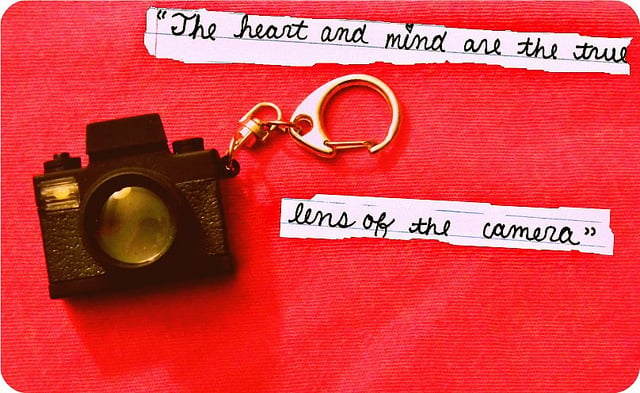Learning to Have a Heart-to-Heart in Thai
GIF via Giphy
Languages around the world use the heart as metaphor for love, disappointment, sadness. In Spanish, a generous person has a corazón de oro, in Lithuanian, a širdies pasikeitimas is a change of heart. In English, we speak of broken hearts, black hearts and bleeding hearts. It’s not often that idioms travel so far, but Thai has the equivalent of each of the aforementioned and about a hundred more. Have a heart-to-heart with us and pick up on some Thai while you’re at it.
Running hot and cold
Probably the most import heart expression is grang jai, an expression that is integral to the complicated hierarchy of respect as it relates to the elder/younger relationship in Thai culture. Greng jai is a striving to offer respect as well not to impose, something like ‘being afraid to cause discomfort’. It’s a concept that is difficult for a Westerner to understand and even more so to follow as it requires understanding nuances of class and power that we have generally shucked off over the last century or so.

Photo via Pixabay
Much more common and easy to understand is Jai ron/Jai Yen. Which are opposite sides of the temperature pole. Jai ron (hot-hearted) is easily excited, angered or impatient, all bad things to be in a hot climate. Jai yen (cool heart) is just what you might expect; cool, calm and collected.
Jai words express all of the fundamental emotions. Jai dam/jai dee – black heart/good heart, just how we would use it in English. Jai Keng/ jai bao is another opposite that translates perfectly: hard heart and soft heart must mean the same in all languages.
Heart words in Thai that describe characteristics almost always start with jai, so always heart plus something. Jai hin to be adamant is being stone heart, ‘stone’ in this case not meaning hard, but instead unmovable. While jai ngai or heart easy means to be gullible. In slang, however, it often refers to a lady having a good time. You can be Jai soo, or a fight heart, meaning to be determined or Jai orn, a flexible heart that is compliant and ready to go with the flow.
Learning a language? Check out our free placement test to see how your level measures up!
Heart words aren’t only used for personal characteristics but also for states of being. Dtok jai, or leap heart, is to be frightened or shocked, as in ‘my heart has leapt out of my chest’. Bpleak jai, or strange heart, is to be confused or awed while full heart, dtem jai, is to be excited.

Photo via Flickr
In every language the strangest expressions are the most fun. In Thai bplaa siw is a tiny little fish caught by the ton, dried and salted for snacks. A person who is Jai blao siw, is a stingy, tiny-hearted person (the more popular expression for stingy is kee neo, meaning ‘sticky crap’). Bpon bpon means to be a slob, therefore jai bpon bpon is to be slob-hearted, which often refers to an adult who lives alone or isn’t taking care of their family.
Hearts and minds
Sometimes the heart and mind in Thai mean the same thing or are interchangeable. Mai kao jai means without knowing information, it can’t enter your brain, very similar to ‘ignorance is bliss’. As in English, sometimes expressions refer to both the heart and the head as in Jai sok graphok, which literally means ‘dirty-hearted’ as well as ‘dirty-minded’ and is often used for dirty old men.
Lastly, beyond idioms jai sometimes refers to the actual heart, rohk huaa jai khaat leuuat, or the medical condition of angina. Huaa jai wai is a heart attack.
So in the end, it’s not always easy as a TSL (Thai as a Second Language) speaker to decipher what someone’s heart is doing in a conversation, nor to remember the hundreds of jai terms, but if you stay jai yen yen most Thais will recognise that you’re jai dee and will offer greng jai so you will be jai sabai.




